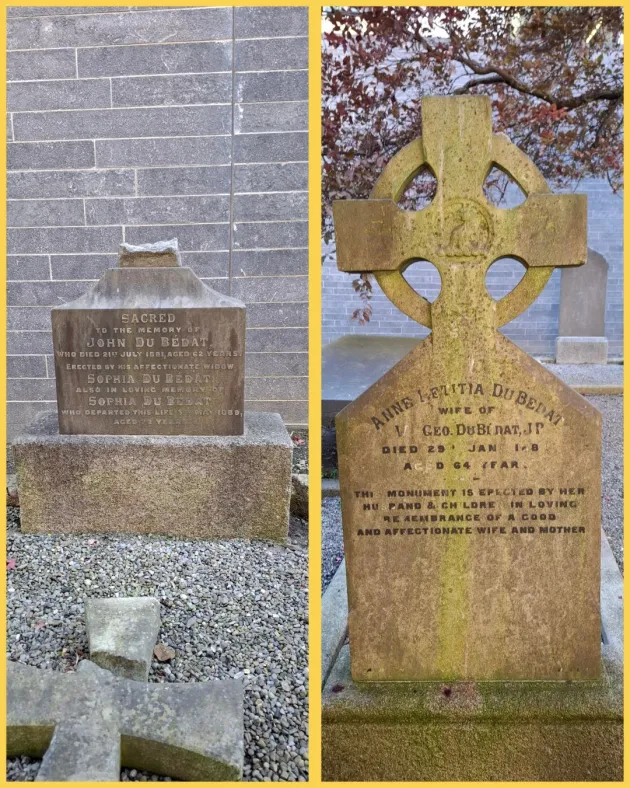The Huguenot Cemetery and Irish Literary References
Published on 25th August 2025
Huguenot Heritage: The name is of Huguenot origin, and the family was a significant part of Dublin's financial and social circles before their collapse.
The name Du Bedat or Dubedat appears in Irish literary references, most notably in George Bernard Shaw's play The Doctor's Dilemma (1906) and James Joyce's novel Ulysses, where it's linked to the fictional Lady Gwendolen DuBedat.
The name is connected to the real-life Francis Edward Du Bedat, a significant but ultimately disgraced figure in Dublin's financial circles whose family's downfall was documented in newspaper articles and possibly alluded to by the characters in literary works.
Du Bedat, a prominent figure in late 19th-century Dublin's financial circles was President of the Dublin Stock Exchange and a trustee of the French Huguenot Fund but fell from grace after committing fraud.

A chat in Davy Byrne’s
Leopold Bloom and Nosey Flynn having a chat in Davy Byrne’s pub.
Bloom says:
“Wouldn’t mind being a waiter in a swell hotel. Tips, evening dress, half naked ladies. May I tempt you to a little more filleted lemon sole, miss Dubedat? Yes, do bedad. And she did bedad. Huguenot name I expect that. A miss Dubedat lived in Killiney, I remember. Du, de la, French”.
The Huguenot DuBedat family did indeed live in Killiney. The disgraced stockbroker baron Francis DuBedat married Rosie Waterhouse and they lived in Glenalua Lodge on Glenalua Road from 1872 to 1889. Their first child Rosa Elizabeth was born in 1879. A son Samuel Swinburne followed in 1880 and another daughter Mary Rosa in 1883 completed the family. They moved into Frankfort (Kenah Hill on St. George’s Avenue) just before his dramatic bankruptcy and flight to South Africa.
Rosie DuBedat was living in Wilmount, off Glenalua Road in 1900.